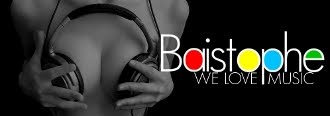Written in the late 1960s at the end of the civil rights movement, Gates was Brubeck's musical attempt at forging a common bond between the American Jewish and black communities. In a time of national polarization over the Vietnam War, and the fight for equal rights for all Americans, the Union of American Hebrew Congregations and the College Conservatory of Music at the University of Cincinnati invited Brubeck to compose a piece that would awaken the spiritual connections between the two communities. According to the composer, "They were both enslaved, uprooted from their homelands and wandered in the diaspora." Brubeck also noted that the historical narratives of both peoples have many parallels. Thoreau would be pleased to know that Brubeck masterfully combined elements from the "earliest and latest" times to create this powerful composition.
This is not a "Jewish" sounding album, but its message is undoubtedly a Jewish value: the brotherhood of man. Brubeck takes his internationally renowned jazz trio and fuses it with the two shining voices of bass baritone Kevin Deas and Cantor Alberto Mizrahi. With the accompaniment of the Baltimore Choral Arts Society, the album often borders on the operatic and dramatic, and would not necessarily be enjoyed by younger audiences. Even so, the universal message of fellowship will inspire all people, regardless of age.
A striking example of Brubeck incorporating ancient and modern elements can be found in the seventh movement "Shout unto the Lord," which uses verses from Psalms, the Book of Isaiah, Hillel, and quotes from Dr. King. To illustrate the connections between the black and Jewish communities in the civil rights movement, Brubeck intentionally juxtaposes the most famous section of King's "I Have a Dream" speech, "Free at last! I'm free at last!/Thank God Almighty, we're free at last!" with Hillel's proverb, "If the time for action is not now, when is it?" In the tenth movement, ""The Lord is Good," popular songs from the 1960s, such as Simon and Garfunkel's "The Sound of Silence" and music from The Beatles, are referenced to give the piece a more modern feel. Jazz interludes are dispersed between tracks, which showcase the Brubeck trio at its best. One of the highlights is from the "Open the Gates Chorale," complete with a dynamic drum solo by drummer Randy Jones.
1. I. Lord, the Heavens Cannot Contain Thee
2. II. Oh, Come Let Us Sing
3. IIIa. Open the Gates
4. IIIb. Chorale
5. IVa. Except the Lord Build the House
6. IVb. Except the Lord Build the House (improvisation)
7. V. Lord, Lord
8. VI. Ye Shall Be Holy
9. VII. Shout unto the Lord
10. VIII. When I Behold Thy Heavens
11. IX. How Glorious Is Thy Name
12. X. The Lord Is Good
13. XI. His Truth Is a Shield
14. XII. Oh, Come Let Us Sing a New Song






No comments:
Post a Comment